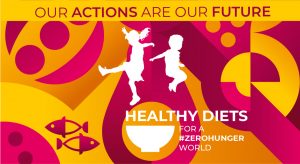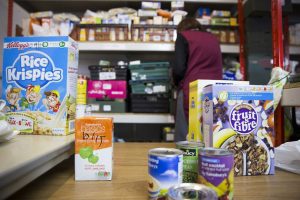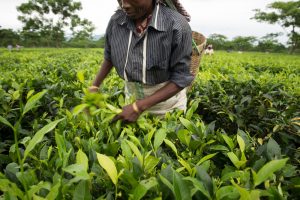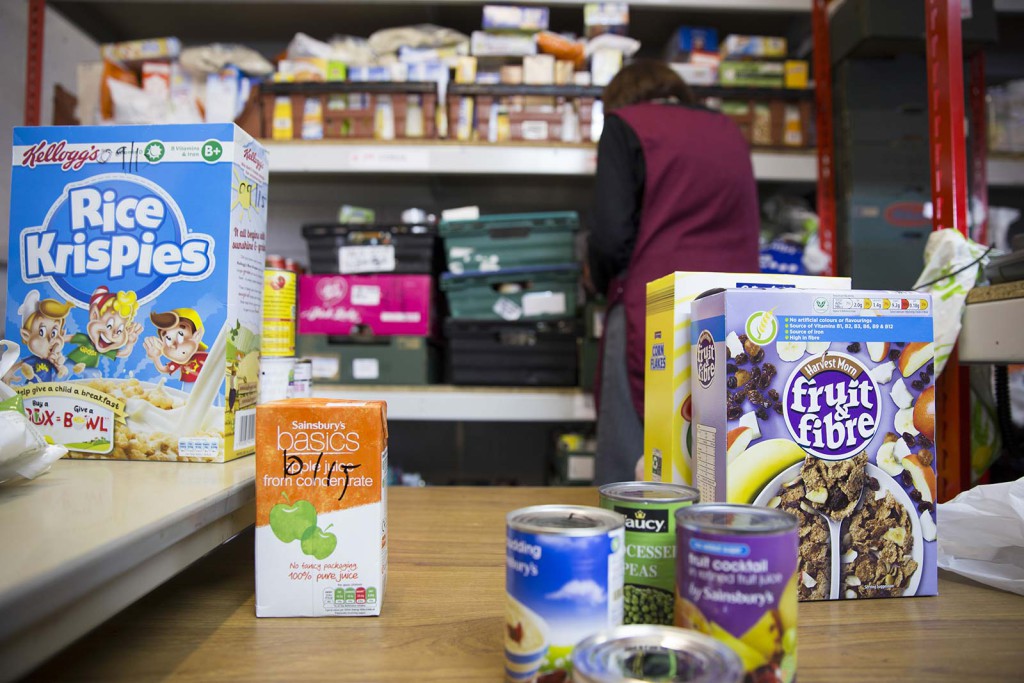Take stock on World Food Day
Today is World Food Day. The theme for 2019 is healthy diets for a zero hunger world. According to the UN, while over 800 million people globally suffer from hunger, over 670 million adults and 120 million girls and boys (5–19) are obese, and over 40 million children under five are overweight.

Here in Wales, in 2018-19 113,373 three-day emergency food supplies were provided to people in crisis by food banks in The Trussell Trust network. Of these, 40,793 went to children. A report from the South Wales Food Poverty Alliance brought together evidence on the scale and impact of food poverty which presented a bleak picture behind which are people just like you and me trying their best to put a nutritious meal on the table. For 160,000 children in Welsh households a healthy diet is increasingly unaffordable and reception-age children are significantly more likely than the Welsh average to be obese if they live in areas of higher deprivation. Achieving Zero Hunger by 2030 is not just about getting food to people who are hungry, but ensuring this food is nourishing people, while also nurturing the planet.

The latest Behind the Barcodes report from Oxfam evidences the crisis in our global food supply chains rife with violations of human, labour and women’s rights. Where forced labour and hidden suffering are unwanted ingredients in products ranging from tea and cocoa to fruit and vegetables, meat and seafood. In-work poverty in these supply chains is the norm, not the exception, and gender discrimination is woven into the fabric.

Image of Assam Tea Plantation by Roanna Rahman
As supermarkets race to supply the cheapest food, less and less of the money that consumers pay at the tills is reaching hard-working farmers, fishers and workers at the end of the line. At the same time, UK businesses and households discard a shocking 10.2 million tonnes of food post farm-gate, over 30% of our greenhouse gas emissions arise from the food system and intensive farming and fishing practices are the main drivers of biodiversity loss. Supermarkets here in Wales and across the UK are helping to normalise hunger by having foodbank collection points in their stores (whilst the lack of ‘fair work’ in some of these supermarkets will likely drive their employees to seek emergency food aid) and normalising waste by redistributing surplus food to charities.

Cheap food comes at a price – unacceptably high human and environmental costs of which we remain blissfully ignorant as we browse the supermarket shelves thinking what to have for tea but it is essential around World Food Day that we take stock of where we are:
- Are we happy that workers helping to supply the supermarkets in which we shop are being systematically denied their rights to decent work and living conditions?
- Are we concerned that Wales only produces 5% of its fruit and vegetable needs whilst nearly 20% of the UK’s fruit and vegetables come from countries at risk of climate breakdown?
- When Wales has no shortage of food, is it acceptable that people must access foodbanks or risk going hungry?
- Is it ok that low income families do not have enough money to buy the food recommended by government for a healthy diet, and are more likely to suffer from diet related disease such as cancer, diabetes, obesity and coronary heart disease?
This week is a time for us to call for a radical shift to address the multiple crises we face, and a determined, holistic focus on food is essential. We must stop tinkering around the edges of food policy and practice here in Wales. This week: the Welsh Government’s consultation on their Food and Drink Action Plan closes; the Welsh Government hosts a meeting to discuss action to address the climate and ecological emergency; an emerging Wales Food Policy Group meets with Wales’ Future Generations Commissioner’s office to voice their concerns; End Hunger call for action on World Food Day; and Wales hosts the 2019 International Fair Trade Towns conference. The time for change is now.This year, #WorldFoodDay calls for action across sectors to make healthy and sustainable diets affordable and accessible to everyone.
As recommended by Sustain, ‘What we need to do now is roll up our collective sleeves and begin.’
By Hayley Richards, Oxfam Cymru
